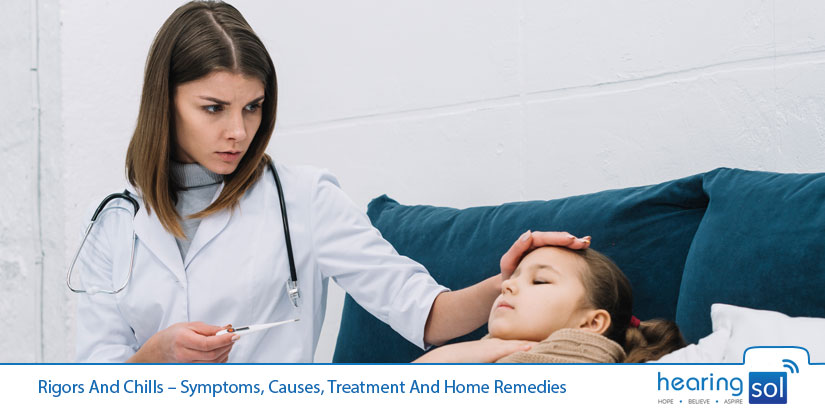
Rigors are the episodes where the affected person usually experiences shivering along with high fever.
It is an unexpected feeling of cold with shivering with a rise in body temperature and often with copious sweating at the onset or height of a fever.
If you need any assistance or have a question about Rigors And Chills, you can consult our HearingSol experts with your problem, feel free to call us on +91-9327901950. We are always here to help you.
However, rigors are the more unpleasant and difficult conditions that an individual can experience. In other words, it is a tremor caused by the chill.
Rigors occur when the individual’s body is effectively shivering and is often considered more dangerous than regular chills. It is an extreme reflex response that occurs for a variety of reasons.
Let’s get all the details about rigors or chills in a specific way.
Rigors Symptoms

Rigor is episodes of shivering and feeling cold while your body temperature is increased above normal.
It can also be followed by a condition of feeling very warm while your body temperature falls.
During this condition of feeling cold and shivery, another person can feel that you are hot to touch but at the same time, you might feel as you are too cold. These rigors can last varying amounts of time like from minutes to hours.
Some of the common symptoms of rigors include:
- Goosebumps
- Shivering
- High body temperature
- Fever
Causes Of Rigors
Rigor occurs when the individual’s body is shivering in a physiological attempt to increase the body temperature to the new set point. Chills mainly occur usually at the beginning of the infection and are significantly associated with fever.
Chills can also be defined as a way of feeling extremely cold. Fever is one of the worst enemies of humans and has been recognized as one of the hallmarks of clinical disease since ancient times.
As soon as fever occurs in an individual, most of them suffer from the feeling of coldness. Rigors and chills are both used to define the feeling of coldness, which occurs during a high fever.
Fever accompanied by rigor is seen in conditions like:
1. Pneumonia

It is a bacterial or viral infection in the lungs which tends to develop slowly over a number of days. It is caused by inflammation in the air sacs in the lungs which are also known as Alveoli.
2. Meningitis

The inflammation of the meninges is called Meningitis. Meninges are the 3 membranes that surround the brain, spinal cord and also helps in protecting the central nervous system. It can lead you to hearing loss also.
3. Brucellosis
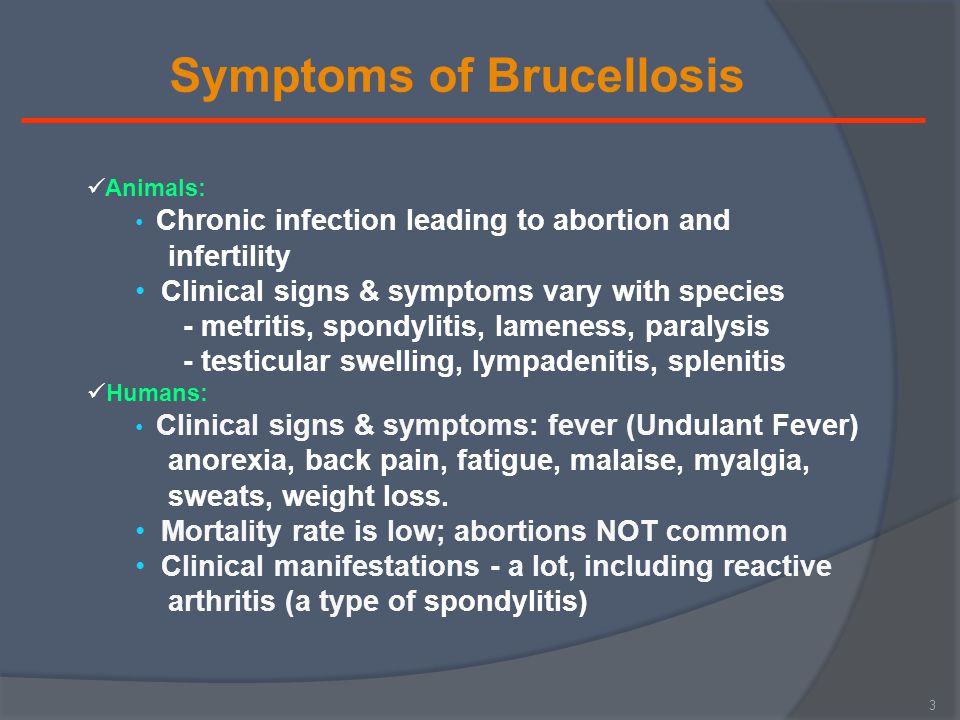
It is an infectious disease caused by bacteria that is known as Brucella. This bacteria might spreads from animals to humans.
Most of the time it happens when a human comes into direct contact with any animal or animal product that is infected with Brucella bacteria.
4. Infective Endocarditis
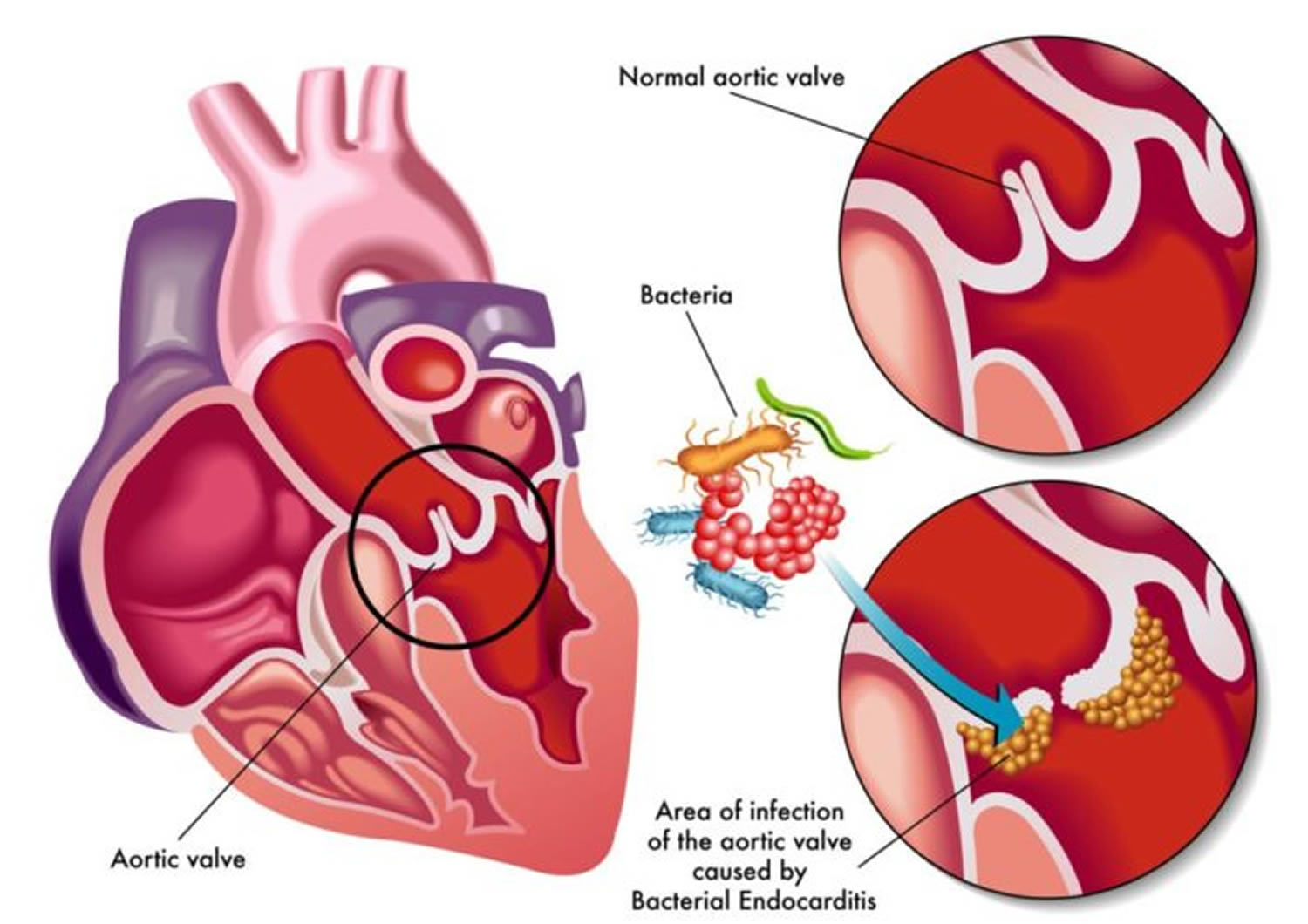
It is an infection of the endocardial surface of the heart that can include one or more heart Aortic valves, mural endocardium, and maybe a septal defect.
Its effects include aortic valvular insufficiency that can lead to heart failure if left untreated.
5. Lyme Disease
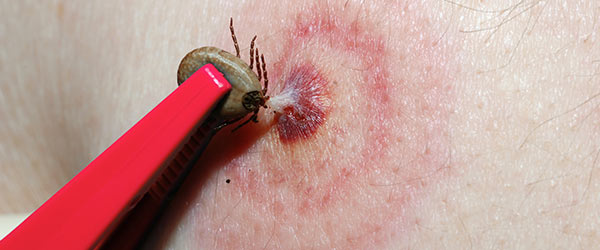
Lyme disease caused by a bacteria known as Borrelia burgdorferi. This bacteria can be transmitted to humans through a bite from an infected black-legged tick.
6. Malaria
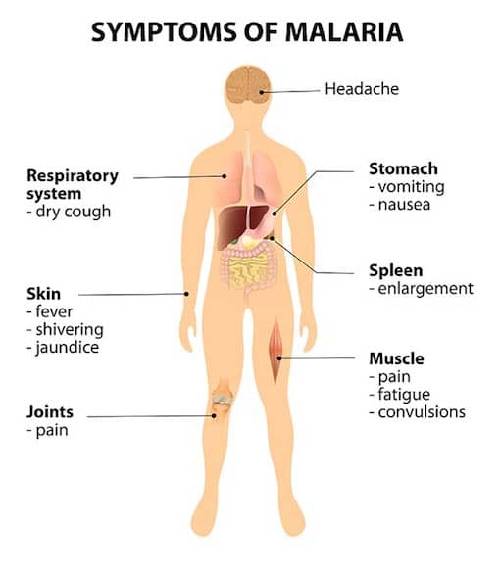
It is caused by the bite of an infected mosquito that is known as Anopheles mosquito. This mosquito carries the Plasmodium parasite which is released into your bloodstream when it bites you.
7. Rheumatic Fever
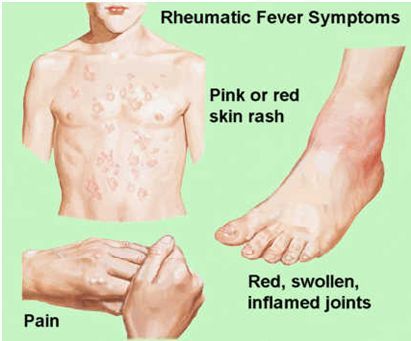
It is caused by a bacterium which is known as Group A Streptococcus. It is an inflammatory disorder that causes Step Throat and Scarlet Fever.
8. Urinary Tract Infections

It is an infection in part of your urinary system, kidneys, ureters, bladder, and urethra. It is caused when bacteria enter into the urinary tract through the urethra and starts to multiply in the bladder.
After this, the bacteria can stay and grow in a full-blown infection in the urinary tract.
9. Stomach Flu
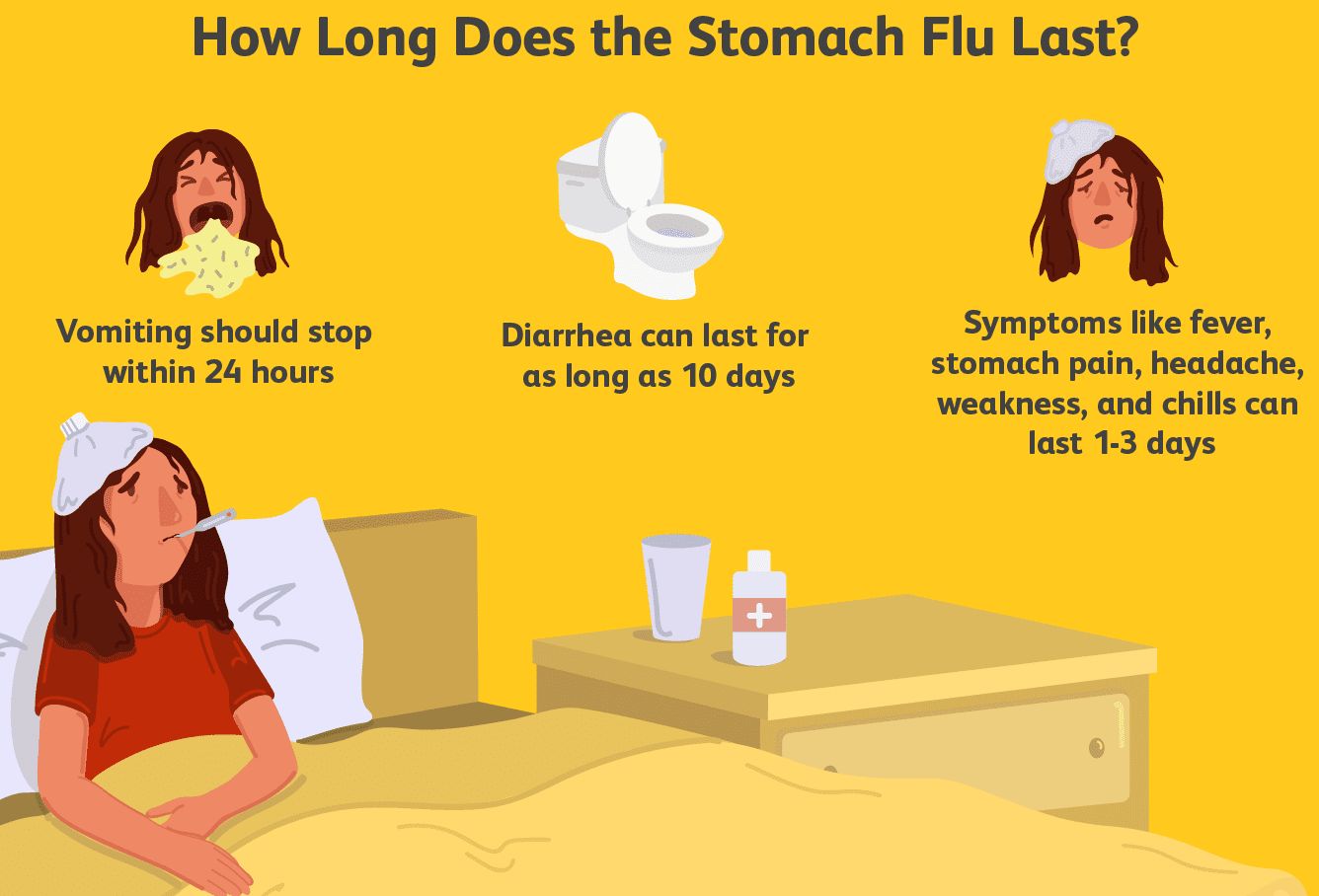
It is also called Viral Gastroenteritis which is an infection in the intestines that causes watery diarrhea, pain, nausea, vomiting, fever, and cramping in your abdomen.
It can be caused by contact with an infected person or by ingesting contaminated food.

It is an infection caused by the Epstein-Barr virus which is also called Kissing Disease because Epstein-Barr virus spreads through saliva.
It can also be spread by sharing drinks with friends/family, eating utensils, cough, etc.
11. Rat Bite Fever
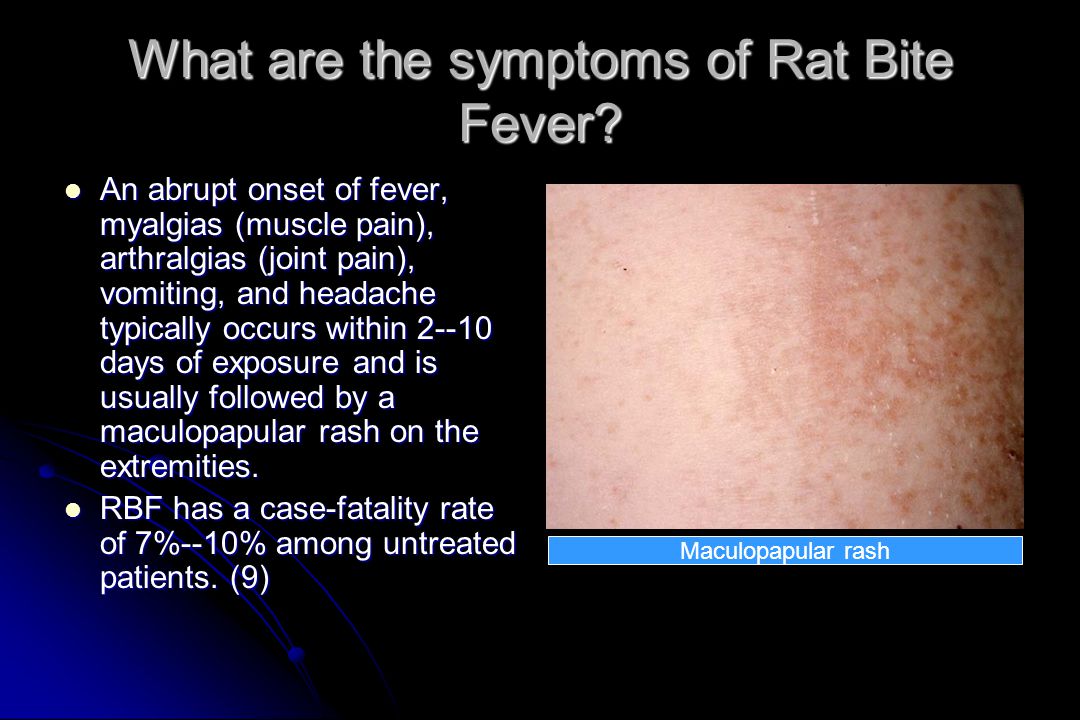
Also called RBF (Rat Bite Fever) and occurs by the bite of an infected rat. It can be caused by two bacterias that are found in the mouths of rats. These bacteria are Streptobacillus moniliformis and Spirillum minus.
12. Filariasis

It is a disease caused by filariae which affect both human and animals. In this disease, continue episodes of inflammation and lymphedema can lead you to lymphatic damage.
lymphatic damages like chronic swelling and elephantiasis of the legs, arms, scrotum, vulva, and breasts.
These are some conditions in which rigors are more likely to happen. The body’s effort to increase temperature is including other reflex responses.
This includes contraction of the Arrector Pili Muscles called ‘goosebumps’ and peripheral vasoconstriction, which causes cold extremities and pallor.
Treatment And Remedies For Rigors
It is advised not to ignore this type of a condition as it is often a marker for significant and sometimes serious infections, most likely being bacteria.
Therefore, it is important to recognize rigor in the individual as the episode is unlikely to be experienced by the person affected and, at the same time, to be aware of the possible significance of its symptoms.
We can treat it through medical treatment or can reduce it from home remedies. It all depends on whether your symptoms are several or mild.
A) Treatment For Rigors
The proper diagnosis for rigors in individuals depending on the clinical assessment and the likely causes.
Very often, the examination may reveal a source of infection, and treatment can be carried out without the need for further extensive diagnosis.
However, in children, extreme care should be taken, which includes seeking a professional doctor to treat the condition.
There is a couple of important diagnoses that are carried out in order to understand the condition properly.
These include:
- Blood test
- Urine test
- CT Scan
- MRI scan
Upon carefully running the diagnosis, the doctor usually carries out temperature-lowering general measures, particularly in children.
Other than this, the doctor may also prescribe medicines in order to reduce the temperature of the body.
B) Home Remedies For Rigors
If the rigors are for a short time with no fever at all then there are also some important remedies that can be performed at home in order to get relief from the rigors.
Following are some prevention tips and remedies that can provide you comfort and calmness if you are experiencing rigor:
1. Stay Hydrated
This is helpful in preventing a lack of fluid in the body which is known as dehydration. It might be useful to give paracetamol to the sufferer and then try again with drinking in half an hour and so on.
2. Don’t Sponge While Shivering
It is not recommended because if the water is cold, the blood vessels under the skin can become narrower and can further raise the temperature.
According to a study, people with rigors become uncomfortable while sponging during the shivering phase. You can do it with warm water but depending on the condition of the sufferer.
3. Don’t Over-Wrap Children
Children who have high-temperature should not be under-dressed and/or over-wrapped because this can worsen the situation by increasing the temperature furthermore.
4. Glucose Tablet
This is useful for diabetic patients. Take a glucose tablet if you have diabetes and the cause of your chill is hypoglycemia. Drinking orange juice, regular soda, eating a few pieces of candy can also help in balancing your sugar level.
5. Herbal Tea
It is a health provider of vitamins and minerals to the body. It is also a great home remedy to take whenever you experience sudden chills because it can take care of fluctuating body temperature.
6. Chicken Soup
It is a great remedy to fight for people who are suffering from rigors because it provides hydration to the body and it also contains nutritious ingredients. These ingredients are also easy to digest.
However, if after trying all the above remedies, you are still not getting comfort than you should definitely concern a doctor as soon as possible.
Conclusion
Rigors that occur without fever can be treated at home and also with changing of lifestyle like a workout routine.
If it occurs with a fever then you might need some medical treatment to cure it. Talk to your doctor if you frequently experience sudden rigors or chills.
If you need any assistance or have a question about Rigors And Chills, you can consult our HearingSol experts with your problem, feel free to call us on +91-9327901950. We are always here to help you.

 Reviewed by Mr. Ranjeet Kumar
Sr. Audiologist, Speech Therapist & Cochlear Implant Specialist, BASLP on
Reviewed by Mr. Ranjeet Kumar
Sr. Audiologist, Speech Therapist & Cochlear Implant Specialist, BASLP on